
Roma – On Tuesday April 16, 2025, the National University of Lesotho (NUL) successfully hosted a vibrant and insightful commemoration of World Health Day. Under the theme “Global Action for Universal Health- Healthy Beginnings; Hopeful Futures,” the event brought together students, university officials, health professionals, and representatives from other organizations to engage in critical discussions on global health matters.
Organized collaboratively by the Faculty of Health Sciences and the Faculty of Law at NUL, with support from the International Human Rights Lab and the World Health Organization in Lesotho, the commemoration served as a crucial platform to explore the interconnectedness of health, the law, and sustainable development.
A central highlight of the event was a compelling debate in a fully packed auditorium among NUL students from the Faculty of Law and Faculty of Health Sciences where the student debaters dissected the topic “Foreign aid cut was a necessary step for sustainable national development”. The students thoughtfully explored the extents to which the cuts may or may not have any effects on national development sustainability, especially in health and proposed innovative solutions to navigate this evolving landscape. The Dean of the Faculty of Health Sciences expressed optimism, noting that the level of arguments and proposals presented during the debate signaled a promising future for health systems in Lesotho. She emphasized that students are the driving force behind the change the country needs. “As students, you are giving Lesotho hope for better health outcomes. I believe that with your passion and our guidance, we can collectively steer the country’s health systems infrastructure in the right direction,” said Professor ’Maseabata Ramathebane, Dean of the Faculty of Health Sciences at the National University of Lesotho.
The WHO Representative, Dr. Innocent Nuwagira, who was also the Guest of Honour at the event provided a key note address which focused on providing context of how the World Health day came into being and its importance, how various stakeholders including Members States and ordinary citizens contribute to health and more importantly the importance of the 2025 Health Beginnings; Hopeful Futures yearlong campaign and calls to action of stakeholders. “Health is the cornerstone of a just and equitable society—achieving universal health coverage and equity is not the work of health professionals alone, it is everybody’s business. Together, let us move forward, united by compassion and conviction, to ensure that healthy beginnings truly lead to hopeful futures for every mother and child in Lesotho,” said Dr. Innocent Nuwagira, WHO Lesotho Representative.
The audience also benefited from insightful presentations delivered by experts in fields of law, health and nutrition. The World Health Organization (WHO) provided a comprehensive overview of Universal Health Coverage (UHC) within the specific context of ensuring healthy beginnings and fostering hopeful futures for all. The National University of Lesotho also highlighted the Legal framework of the Right to Health. Presentations were also made on Leveraging Health resource mobilization in Lesotho, offering perspectives on innovative strategies for sustainable healthcare financing within the nation and Baylor College of Medicine delivered a crucial presentation on the significance of Nutrition in the first 1000 days of life, underscoring the critical role of early nutrition in shaping long-term health outcomes and contributing to hopeful futures.
The event demonstrated the commitment of the National University of Lesotho to nurturing future leaders who are not only aware of global health challenges but also equipped to contribute to meaningful solutions. The diverse participation from law, health sciences, and nutrition students underscored the need for a multi-disciplinary approach required to obtain meaningful progress towards Universal Health Coverage and ensuring the well-being of all.
The successful World Health Day commemoration at NUL served as a timely reminder of the collective responsibility to invest in health systems that guarantee “Healthy Beginnings and Hopeful Futures” for all Basotho.

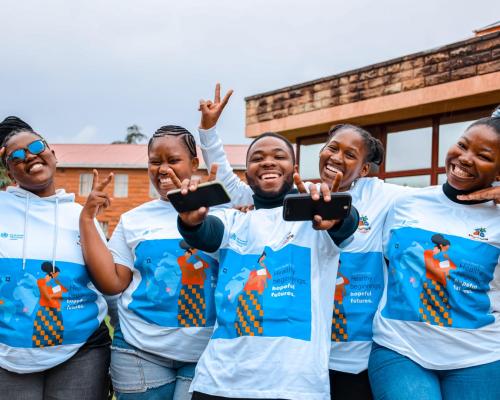
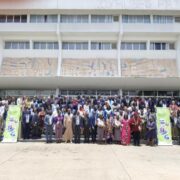
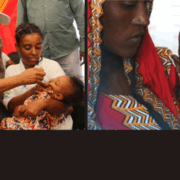
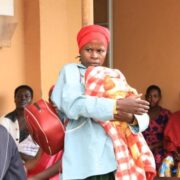

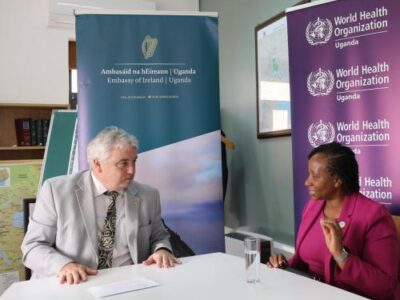
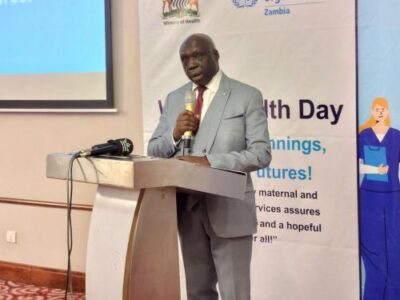
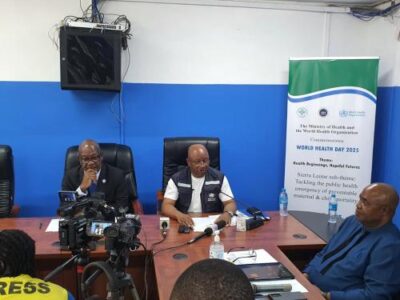


Comments